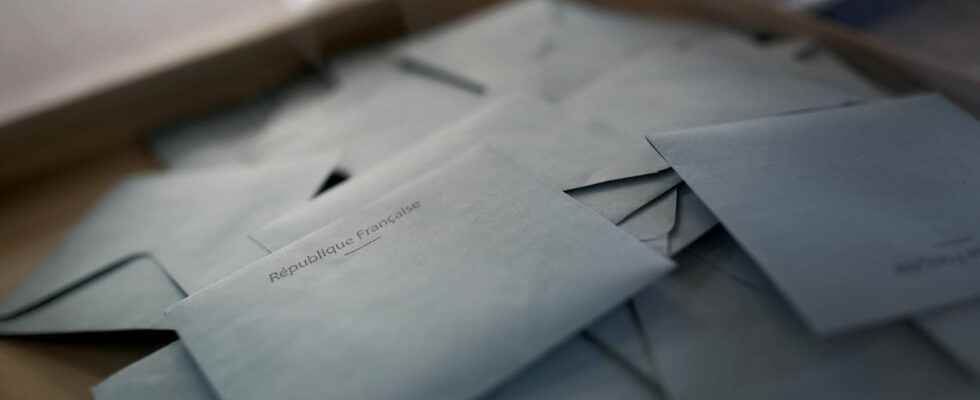RADIO LONDON. As with every election, messages, often “coded” but easily understandable, abound on social networks to, they say, give indications of the result of the first round of the presidential election. Is it reliable?
Presidential results near you
[Mis à jour le 10 avril 2022 à 20h10] Once again, the RadioLondres hashtag regularly present on Twitter during the last election days, appeared on the occasion of this 2022 presidential election. At midday, the first coded messages leaked, more to give publicly his vote or his preference only to give real information or forecasts. It is therefore difficult to see clearly even if the previous elections have shown that figures close to the official results published in the evening could well circulate on the web from the end of the afternoon.
It has in fact become a habit for about ten years, exacerbated over the years with the development of social networks. These predictions are made in the form of sibylline codes (whose name Radio London takes up the process of the messages sent through the BBC to the Resistance. During the afternoon, the first “coded” messages giving the tendency (often random or unverified, even totally eccentric!) appear.
It remains to know how to decipher the terms used, although often understandable by the general public. “The kid passed his exams” was notably written in 2017 to evoke Emmanuel Macron, then a novice in politics but in the lead in the first round, while “the rillettes [étaient] cooked” for François Fillon, him the elected official of Sarthe, land of rillettes in Le Mans, or that “in Overseas, red wine is sold[ait] good”, welcoming the good score of Jean-Luc Mélenchon in the overseas territories. Metaphors linked to the name, the physique, the personality or even the party of the candidate are used to evoke them without naming them. All the news devoted to the presidential election is to be found in our big live.
Radio London, how to get the results of the 2022 presidential election in advance?
Compulsory coded messages because no estimate can be published before 8 p.m. on the day of the vote, when the last polling stations close. Thus, these sibylline messages are established from those made by foreign media, in particular Belgian and Swiss, the latter not being required to respect French legislation in the matter. But other results that are just as estimated and not more verified (or even completely bogus) can also be broadcast by activists in an attempt to mobilize those who are undecided at the last minute to go and vote in favor of their candidate. A “tactic” that specialists consider marginal and without influence on the outcome of the ballot, the vast majority of people who have decided to vote having already passed through the polls.
In 2017, the Belgian site La Libre published the first estimates at 7 p.m., closely followed by RTBF. The figures of the latter gave Emmanuel Macron in the lead with 24% of the vote while Marine Le Pen had collected 22% according to the data available to the media, evoking with caution the fate reserved for François Fillon, closely followed by Jean-Luc Mélenchon. The final results gave the future President of the Republic 24.01% and his opponent 21.30%.
Where do these trends come from?
If they can emanate from foreign sites, where can these “Radio London” style messages also come from? This is the limit of these publications on social networks. No official data can be revealed before 8 p.m., two scenarios then arise: a “trend” given from results obtained in one or more polling stations following the first counting – which are therefore not significant, failing to meet the quota standards imposed on polling institutes – or simply making outlandish allegations devoid of any basis in an attempt to influence voters at the last minute, when this has a limited scope and impact.
Where can I find the results of the first round of the presidential election?
If Radio London seeks to give more or less fallacious tendencies, to be patient and wait until 8 p.m. is the most desirable option to obtain the real photograph of the first round of the presidential election. Mobilized throughout the day of this Sunday, April 10, 2022, the editorial staff of Linternaute will publish, from 8 p.m., the first estimates made by the polling institutes. Until then, no figures will be communicated. The results will then be refined throughout the evening.
What reliability?
If in the past, these “coded” messages from Radio London were not particularly reliable, they are even less so with the later closing of the polling stations. Indeed, since the 2017 presidential election, the votes close from 7 p.m. However, until then, some of the voting booths installed in France were no longer accessible from 6 p.m. Thus, the lapse of time between the first counts and the lifting of the embargo on the figures was more consequent and made it possible to collect more partial results. However, with the closing of the votes an hour later, it is as much less latency time, making it possible to limit “leaks”, especially since the counting process is long and very formal. At best, the first figures put together could make it possible to obtain estimates about ten minutes before the official timetable.
How are Radio London hype messages written?
On the day of an election, which is moreover presidential, users are full of ingenuity to evoke “trends coming out of the polls” (read above), while waiting for the first official estimates at 8 p.m. The sibylline messages of Radio London are written through metaphors making it possible to identify, despite everything, the candidates, without too much difficulty. The origins of the candidates (place or region of birth), puns related to the family name (in 2012, François Hollande was associated with the Netherlands) or their characteristics (heel pads were used for Nicolas Sarkozy, kid for Macron) are mainly used to form the messages.
